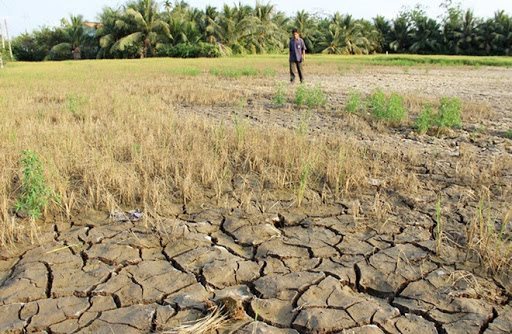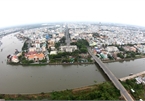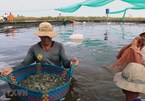Ben Tre, Kien Giang, Ca Mau and other provinces in Mekong Delta have asked the government permission to build reservoirs in their localities to store freshwater.

However, some scientists believe that the solution won’t help.
Duong Van Ni from the Environment and Natural Resources Faculty of the Can Tho University cited a series of reasons that make the solution unfeasible.
| About 95,600 households in Mekong Delta face freshwater shortage because of drought and saline intrusion. |
First, the saline intrusion which leads to freshwater shortage occur in coastal areas. The soil in this area is sandy which makes it impossible to prevent water from leaking and saltwater from outside from penetrating into the reservoirs.
This explains why salinization occurred just after six months of operation at Kenh Lap Reservoir, the largest in Mekong Delta, located in Ba Tri district of Ben Tre province, built with investment capital of VND85 billion.
Second, many coal-fired thermal power plants have been built in coastal areas, so it is necessary to re-assess the air quality in the region. There is a possibility of rainwater getting polluted.
According to Nguyen Huu Thien, an independent expert on the Mekong Delta, there are problems that need consideration when building ponds, reservoirs or water storage facilities for coastal areas.
First, it is necessary to separate the water sources for domestic use and for production.
The works to store water for production cannot satisfy the requirements for domestic use because the water may get polluted from production activities, which leads to organic eutrophication or accumulation of inorganic toxins.
Water stored in ponds and lakes has low oxygen content and it has low self-cleaning capability. Therefore, it is necessary to be sure that all pollutants cannot penetrate into the water sources.
Second, it is necessary to consider building many small reservoirs in many localities or one large reservoir.
With one large reservoir, it will be easier to manage and install a water processing plant. However, it would be more costly to transmit water to people because of long distances.
Third, it is necessary to consider the possible volume of water loss. Ponds, reservoirs and water storage facilities need to be deep enough to offset the water volume to evaporate.
Fourth, it is necessary to reinforce canal bed and roof to prevent water and saline intrusion, and alum intrusion. In addition, it is advisable to cover the surface with plants to help treat water and reduce evaporation.
Thien thinks that it would be better to apply different measures to satisfy freshwater needs. While large water supply works are better for urban areas because of high number of water users, they would be less helpful in thinly populated areas.
Thanh Lich

Can Tho to become first smart city in Mekong Delta by 2025
Can Tho, the most populated city in the Mekong Delta region, has achieved outstanding results in developing a project to build a smart city after nearly two years of implementation.

Mekong Delta shrimp prices fall as COVID-19 hits demand
Shrimp prices have plummeted in the Mekong Delta since global demand has been hit severely by the COVID-19 pandemic.
 About 95,600 households in Mekong Delta face freshwater shortage because of drought and saline intrusion.
About 95,600 households in Mekong Delta face freshwater shortage because of drought and saline intrusion.